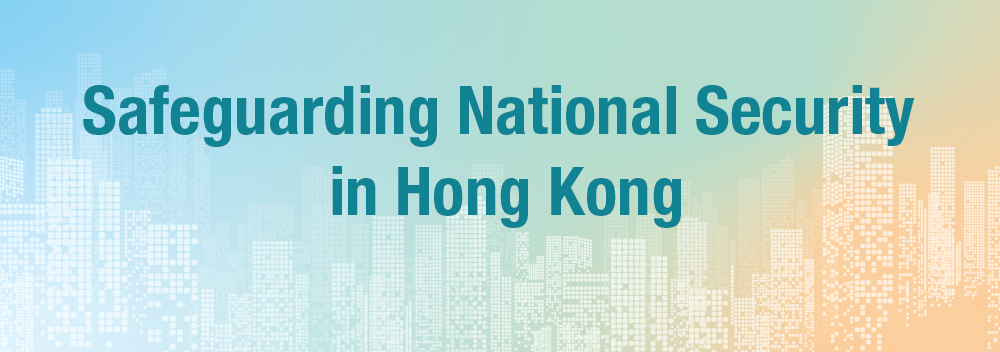
Quiz
The Inter-departmental Counter Terrorism Unit (ICTU) website is a one-stop platform to disseminate counter-terrorism (CT) information with a view to enhancing public’s CT awareness and response capabilities in times of emergencies.
The following quiz will test your familiarity with key CT information and relevant emergency response advisory:
QUIZ
1 . What approach should one adopt to stay safe in the event of a violent attack?
- A “Shake My Head”
- B “Stay Put”
- C “Run, Hide, Report”
In the event of a violent attack, one should adopt the approach of “Run, Hide, Report” to stay safe:
- “RUN” – To run out of the attacker’s line of sight and leave the scene via a safe route. More importantly, refrain from staying at the scene for taking photos or videos but leave immediately to avoid danger.
- “HIDE” – If it is impossible to leave the attack scene, hide and lock yourself in a room, and then mute the mobile phone and turn off the vibration function as soon as possible. Refrain from using any items that can emit light or sound to avoid drawing the attacker’s attention
- “REPORT” – Call the police for assistance via 999 when safe or far away from the attack location.

2 . What emergency preparedness skills should one utilize in case of emergency or contingency?
- A “Three Colours”
- B “Three Basic Skills on Emergency Preparedness”
- C “Freestyle”
The emergency preparedness skills promoted by the Fire Services Department (FSD) can be grouped into three broad categories, namely “Extinguish and Prevent Fire”, “Self-help and Help Others” and “Escape and Evacuate”. These skills are collectively termed the “Three Basic Skills on Emergency Preparedness”.
- Extinguish and Prevent Fire
Learn how to use and maintain fire service installations and equipment correctly. In case of a fire, you can effectively control and even extinguish the fire at the initial stage. This will reduce human casualties and loss of property. - Self-help and Help Others
Learn the proper emergency self-help knowledge and skills. In case of emergency, you can help yourself and, when safe to do so, help others. - Escape and Evacuate
Always check out the escape routes and exit signs in the buildings and venues you visit. In case of a fire or other emergency, you can immediately follow the routes and signs and make a quick escape to safety.

3 . What is the 24-hour hotline provided by the Assistance to Hong Kong Residents Unit of the Immigration Department?
- A “999”
- B “1823”
- C “1868”
Assistance to Hong Kong Residents Unit of the Immigration Department 24-Hour Hotline ‘1868’
Hong Kong residents encountering a terrorist incident outside Hong Kong should apply the advisory of “Run-Hide-Report”, which includes reporting to the local authority when safe or far away from the attack location. If necessary, Hong Kong residents may seek assistance from the Assistance to Hong Kong Residents Unit of the Immigration Department by calling its 24-hour hotline at (852) 1868; calling the 1868 hotline using network data via the Hong Kong Immigration Department mobile application; or submitting the Online Assistance Request Form.

4 . What are the factors that you can take into account of when identifying a suspicious object?
- i. Is the appearance of the object unusual?
- ii. Is the existence of the object foreign to area?
- iii. Can the owner of the object be identified?
- A All of the above
- B ii, iii
- C i, ii
As the shock wave and fragment resulted in an explosion do not point to a specific direction, it is for sure that a lot of people will be innocently wounded or killed in a bombing attack. Therefore, one must stay alert and heighten vigilance against explosives, especially look out for unattended suspicious objects in crowded places.
What actions should be taken upon locating explosives or suspicious objects:
- Keep calm
- Keep yourself and others away from the object
- Do not touch or move the object
- Report to the police immediately

5 .What are the behavioural traits that radicalized individuals may display?
- i. Flooded with grievance and hatred
- ii. Hostility against out-groups
- iii. Develop sense of mission
- iv. Advocate extreme violence
- A All of the above
- B i, ii, iii
- C i, ii, iv
Radicalized individuals may display the following behavioral traits:
- Flooded with grievance and hatred — turn radical due to the influence of extremist belief, dissatisfy with the surrounding society, constantly blame inequality and injustice for personal failure, identify specific targets to express grievances.
- Hostility against out-groups — engage in fierce conflict due to unwillingness to accept opposing views, perceive people holding different stances as enemies, gradually marginalize and isolate from normal society.
- Develop sense of mission — develop a strong sense of mission owing to obsession with extremist ideologies, believe it is a duty to pursue his/her ideologies by means of extreme violence.
- Advocate extreme violence — legitimize or even glorify extreme violent acts, incite like-minded individuals to achieve their common goals by violent means.

6 . What are the reporting means if you come across any suspected terrorism-related information of a non-urgent nature that do not require immediate police attendance?
- i. Via ICTU online reporting system ‘https://www.ictu.gov.hk’
- ii. Email to ‘ctinfo@police.gov.hk’
- iii. Via CT Reporting Hotline 63-666-999
- iv. Call 1823
- A All of the above
- B ii, iii
- C i, ii, iii
If the public come across any suspected terrorism-related information of a non-urgent nature, one can report through ICTU’s online reporting system (‘https://www.ictu.gov.hk’), email to ‘ctinfo@police.gov.hk’ or via CT Reporting Hotline 63-666-999. Yet, the public should note that these reporting channels are not for the purpose of general police reporting. Instant response to the report or enquiry will not be available.
Meanwhile, if one encounters suspected terrorism-related activities, which involve urgent or possibly urgent situation, or require or possibly require immediate police assistance at scene (e.g. involves casualties, immediate danger, occurrence of crime, discovery of suspicious person or suspicious object), one should call 999 to seek assistance.


Congratulations!
You have completed the Quiz!




